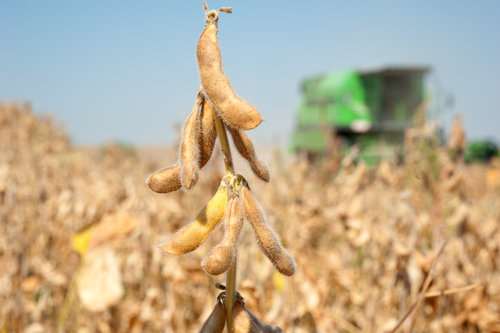Syngenta launches the varieties on Tuesday
By Diego Flammini
Assistant Editor, North American Content
Farms.com
Soybean farmers in Western Canada will have three new soybean varieties to choose from.
On Tuesday, Syngenta announced the launch of three new varieties bred to fit western geographies, deliver strong yield potential and disease resistance, and give growers the ability to spread out maturity risk.
S001-B1, S003-L3 and S006-W5 are high-yielding, Genuity Roundup Ready 2 Yield varieties bred for producers who are looking to increase overall yield potential and reduce risk.

S001-B1 is an early maturing, medium-tall plant best suited to the early double zero (00) maturity zones across the Prairies. It can offer great standability for strong emergence, consistent yields and easy harvestability, along with excellent iron deficiency chlorosis (IDC) tolerance and good white mould tolerance.
It also comes with the Rps1c gene for Phytophthora root rot with very good field tolerance.
The second variety, S003-L3, is a medium- to short-height plant best suited to the early maturity 00 zones in western Manitoba and Saskatchewan. The variety’s characteristics include a narrow lancelet leaf shape, as well as top pod clusters that provide a late season boost to yields in ideal growing conditions.
It features IDC tolerance, good white mould tolerance and the Rps6 gene for managing Phytophthora root rot.
The third variety, S006-W5, is a medium-height plant that’s well suited to the highly productive soils found in the mid- to late 00 zones in Manitoba’s soybean growing areas.
In 2015, the Manitoba Crop Variety Evaluation Team’s trials saw the variety yield 10 per cent above the industry check. It features the Rps1a and Rps3a gene stack for excellent Phytophthora root rot protection.
The seeds will be made available for purchase in fall 2016 for 2017 seeding.